How is High Blood Pressure Diagnosed?
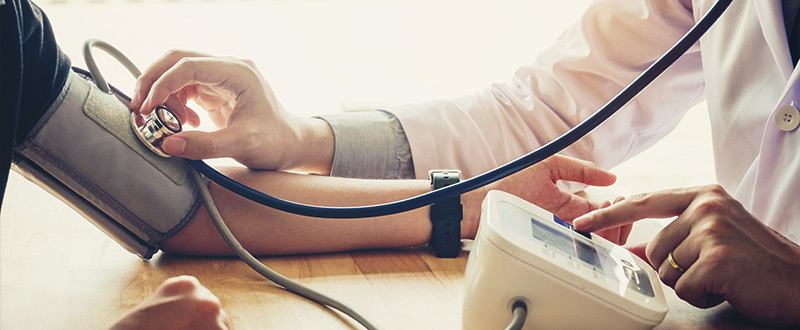
Table of Contents
Introduction to High Blood Pressure
Hypertension (high blood pressure) can be defined as a condition in which blood pressure in the arteries is elevated to a large extent due to the deposition of plaques in the walls of the arteries leading to their constriction. Hypertension is one of the most common causes of cardiovascular diseases. It is often called the ‘silent killer’, as it does not show any symptoms initially. Myocardial infarction, stroke, peripheral vascular disease, tear in the wall of a major artery carrying blood out of the heart, and progressive renal insufficiency are some of the complications related to hypertension.
Hypertension exists in two forms – primary hypertension and secondary hypertension. Genetics, ageing, sedentary or inactive lifestyle, obesity, stress, high salt intake, and certain diseases like acromegaly, hyperthyroidism, and diabetes are some of the major causes contributing to hypertension.
How Is Hypertension Diagnosed?
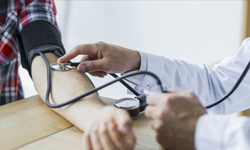
How Is Blood Pressure Measured?
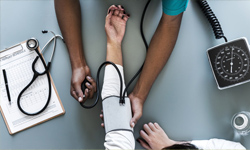
-
Systolic Blood Pressure
In written form, the first number or the number on the top is called the systolic blood pressure. This is the rate at which your heart is pumping out blood to the rest of your body. The normal reading for systolic blood pressure is 120 mm Hg.
-
Diastolic Blood Pressure
The second number or the number at the bottom is called the systolic blood pressure. This is the rate at which your heart is filling up with blood. The normal reading for systolic blood pressure is 80 mm Hg.
This is the reason blood pressure is written as 120/80.If the reading of systolic blood pressure is equal to or greater than 140 mm Hg, and/or the diastolic blood pressure reading is equal to or greater than 90 mm Hg, then you could be suffering from elevated blood pressure. An ideal blood pressure reading would be 120/80, or even better, 115/75.It is crucial to know and understand that high blood pressure puts extra load on the heart and blood vessels. If blood pressure is not monitored, the risk of getting a heart attack or choking increases.
Tests Conducted After Getting Diagnosed With Hypertension
If you are diagnosed with hypertension, your physician may carry out the following tests:
- An electrocardiogram test to measure the electrical activity, rate and rhythm of your heartbeat on a graph paper
- An echocardiogram examination is performed to provide pictures of the heart’s valves and chambers. The pictures help to measure the pumping action of the heart chambers. It also provides information on the thickness of the heart wall.
- Various blood tests to rule out any other doubts
- Urine test
- A chest X-ray could also be prescribed
Conclusion
Hypertension can be treated by making lifestyle changes and monitoring your dietary habits. One should exercise regularly to stay fit and keep the heart healthy, eat a balanced diet, eat foods rich in nitrates, reduce salt intake, quit smoking, avoid alcohol, and limit caffeine intake to keep the blood pressure in control. Unfortunately, there is no cure for hypertension. However, several patients around the globe manage this condition by adopting a healthy lifestyle. If you are at risk of developing hypertension or are already a patient, go for regular check-ups to monitor hypertension.
Note of Caution: This article is for information purpose only. Always consult your doctor in case of any blood pressure or other health-related problems.
Disclaimer
The information contained in this article is to educate, spread awareness in relation to hypertension and other diseases to the public at large. The contents of this article are created and developed by BPinControl.in through its authors, which has necessary, authorisations, license, approvals, permits etc to allow usage of this articles on The Website. The views and opinions expressed in this article are views, opinions of the respective authors and are independently endorsed by doctors. Although great care has been taken in compiling and checking the information in this article, The Website shall not be responsible, or in any way liable for any errors, omissions or inaccuracies in this article whether arising from negligence or otherwise, or for any consequences arising therefrom. The content of this article is not a substitute for any medical advice. The Website shall not be held responsible or liable for any consequence arising out of reliance on the information provided in the article.

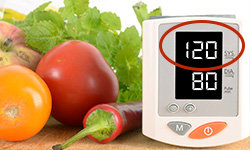 In written form, the first number or the number on the top is called the
In written form, the first number or the number on the top is called the 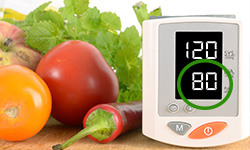 The second number or the number at the bottom is called the systolic blood pressure. This is the rate at which your heart is filling up with blood. The normal reading for systolic blood pressure is 80 mm Hg.
The second number or the number at the bottom is called the systolic blood pressure. This is the rate at which your heart is filling up with blood. The normal reading for systolic blood pressure is 80 mm Hg.
Comments (9)
Chinmayi
I recently bought a blood pressure monitor and I wanted to know the right way to measure my BP. Can you help?
Honey
Can I know some causes of hypertension, so I can prevent it?
Sridhar
Is it advisable to measure blood pressure at home?
Laxmi
I have a family history of high blood pressure and I want to prevent it from happening to me. When and how often should I start measuring it?
Hasnaat
Good read and informative
Add your comment